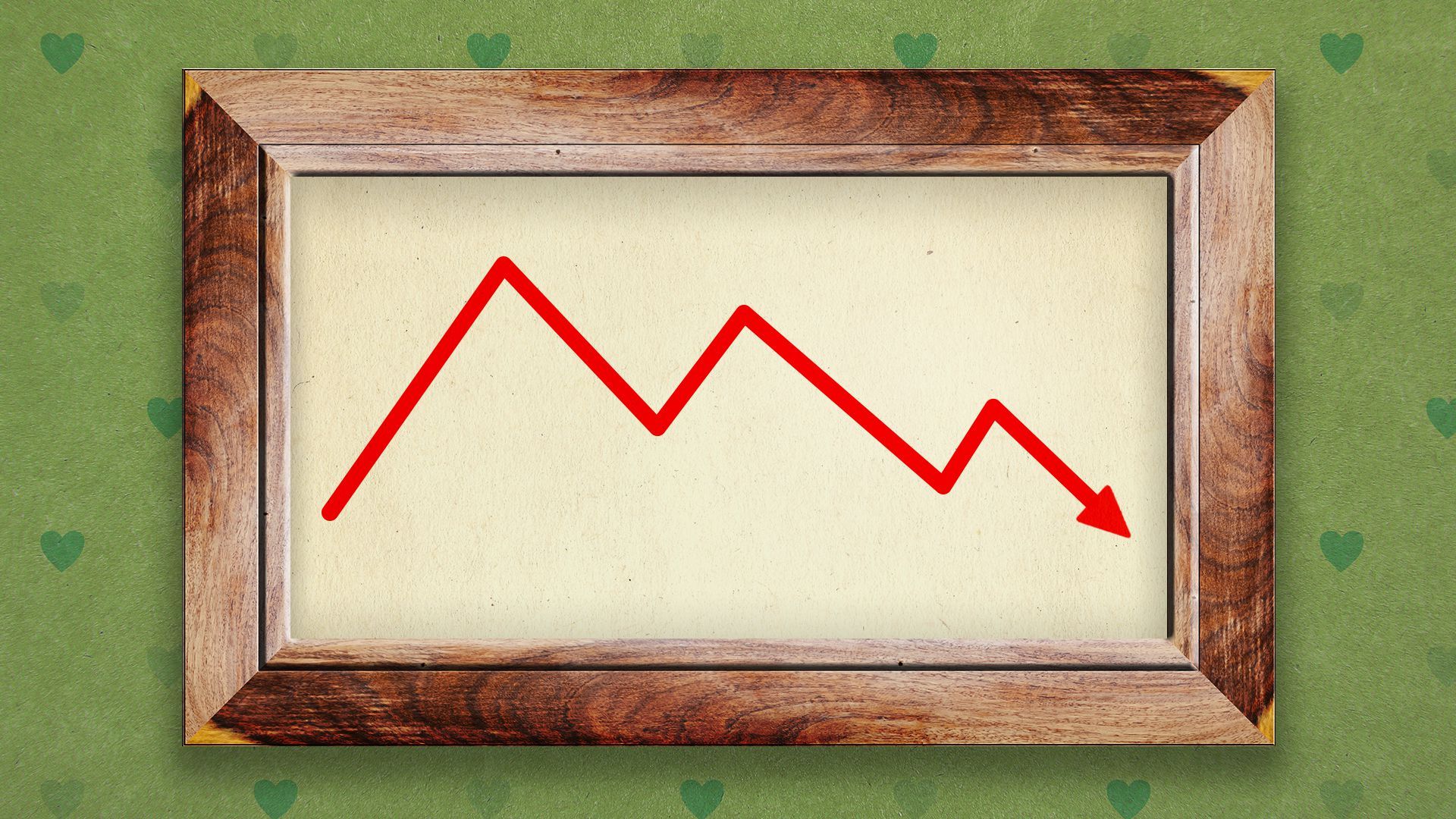Evergrande's reassuring default
Add Axios as your preferred source to
see more of our stories on Google.

Illustration: Annelise Capossela/Axios
It's not a Lehman moment but it's still a very big deal. Chinese construction giant Evergrande looks set to default on its $300 billion of liabilities, in a move that has already had global market repercussions.
Why it matters: Evergrande is the first big test of the global financial system — and especially the Chinese financial system — since the pandemic-induced chaos of March 2020, when central banks around the world were forced to take unprecedented measures to prevent total collapse. So far, world markets seem to be coping just fine.


Context: By any measure, an Evergrande debt default would be one of the largest in history of the world.
- To put its $305 billion debt load in perspective, Argentina's massive foreign-debt default in 2001 was about $93 billion; Greece's restructuring in 2012 was about $200 billion; and Lehman Brothers had about $600 billion in debts when it filed for bankruptcy.
- While those defaults shook entire economies, Evergrande seems to be causing little more than some medium-sized market jitters — not even enough to derail the huge number of IPOs (14) due this week.
Between the lines: Evergrande debt has always carried a low junk rating, and the company was being described as "the biggest pyramid scheme the world has yet seen" as long ago as 2017. As a result, investors in Evergrande, much like investors in bitcoin or GameStop, were acutely aware that they were taking a big risk.
- Financial crises generally happen when (seemingly) safe assets unexpectedly default, not when risky assets do something that was largely foreseen.
The big picture: The Chinese government has been worried about the amount of debt in the domestic property sector for years, and has aggressively been trying to force the large players, including Evergrande, to deleverage.
- Evergrande's failure — along with that of other highly-indebted companies — can be seen as a price that the Chinese government is willing to pay in order to make the country's broader financial system less risky.
What's next: As economist Adam Tooze asks: "The crucial question is, can Beijing manage this controlled demolition?"
- China's markets won't open until Wednesday, so we'll know more about their signals then. (They're closed Monday and Tuesday for the Mid Autumn Festival.)
- A full-scale crisis is still possible. But consensus among China watchers — coupled with the magnitude of the market reaction thus far — implies that Beijing is aware of the risks and has financial firefighters waiting in the wings in case of emergency.
The bottom line: It's normal and healthy for markets to fall when giant companies fail.
